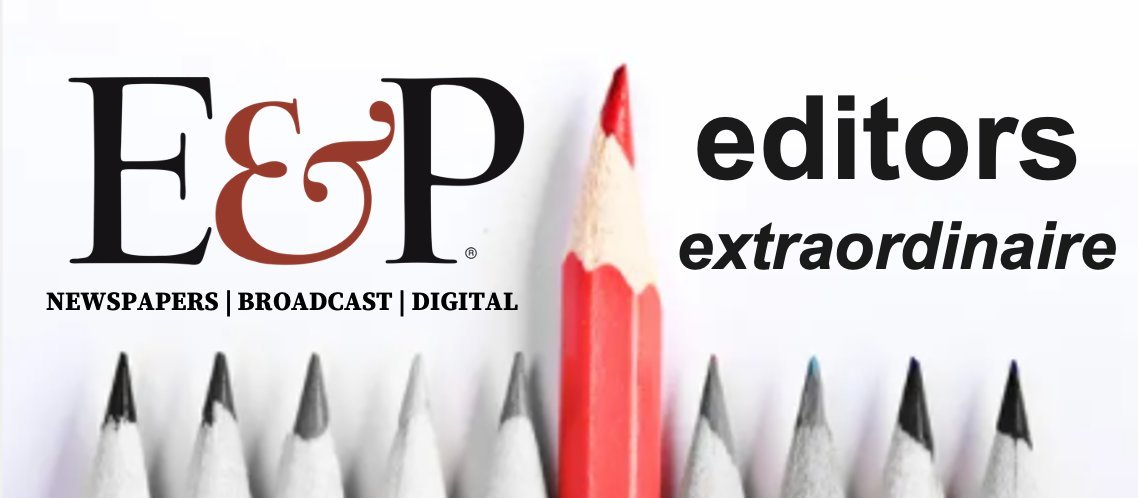
It’s easy to recognize those who run the news media company or write award-winning articles, but there are those behind the scenes whose contributions are immeasurable. In newsrooms across the country, editors bear heavy responsibilities — leading the newsroom, determining what stories should be told and who is best positioned to tell them, challenging assertions, developing talent, elevating journalism — all while maintaining an unwavering commitment to the public’s interest. Their names may not always be as familiar as bylined reporters or celebrated columnists, but their insight, experience and leadership are indispensable.
Through 2010, Editor and Publisher saluted an “Editor of the Year.” We wanted to celebrate the editors’ contributions to news media once again, and we believed that many would be deserving. We hope you enjoy meeting this exemplary group of E&P’s 2022 Editors Extraordinaire.
(Alphabetically, by last name)
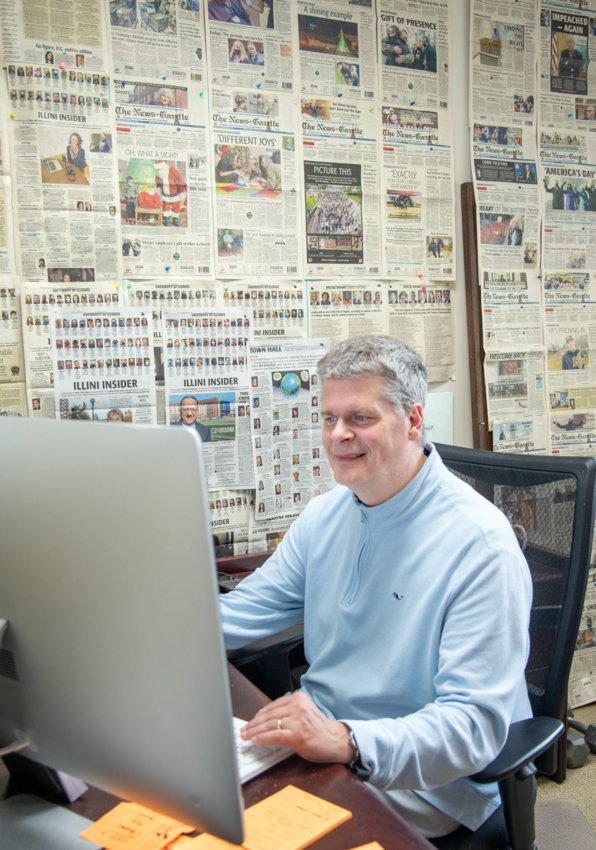
Jeff D’Alessio
Editor, The News-Gazette of Champaign, IL
Education: St. Bonaventure University, bachelor of arts in mass communications
Jeff D’Alessio’s nomination lauded his award-winning journalism: “seven (and counting) consecutive Illinois Press Association Newspaper of the Year honors (longest streak by far in the state) and three E&P ‘10 That Do It Right’ awards (and four honorable mentions).” But probably more impactful — “he changed the way the newspaper is perceived: We better reflect the diverse audience we serve thanks to the many changes he has quarterbacked.” Many newsrooms are trying to do what Jeff has done with a newsroom “one-third the size of three years ago.” After reading this, we knew we wanted to hear from him.
What advice do you have for other young professionals who aspire to become an editor extraordinaire?
I don’t pretend to know what makes an editor extraordinaire, but here are a few journalism rules I try to live by: Be a fierce advocate for your staff, even if it means occasionally setting a subscriber straight.
Set lofty standards and never waiver from them — even for a 3-inch brief.
Never pass on an opportunity to engage a reader, build a story around an anonymous source or stop trying to tell stories in new, innovative, alternative, more reader-friendly ways.
Recognize that being an editor in 2022 comes with a different job description than in 2000, 2010 or 2020. It often also involves playing breaking news writer, iPhone photographer, social media marketer, Zoom public speaker, radio fill-in and — something that might have been (foolishly) frowned upon 20 years ago but is essential in this challenging media climate — liaison to the advertising department. The latter can be achieved without crossing any sacred ethical lines.
What are some important lessons you have learned from your audience?
They know the difference between good journalism and cheap clickbait, appreciate a product with coverage that reflects the diverse community we call home, and are chock-full of story leads and tips that we'd never have known about had we not returned their phone call, answered their email or joined them for lunch.
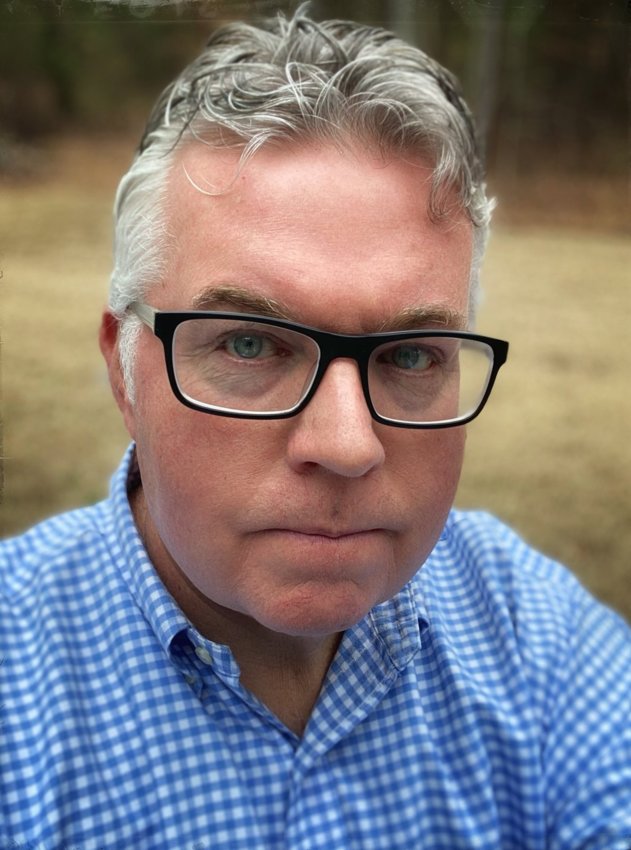
Bill Horner III
Publisher and Editor, Chatham News + Record
Education: University of Kansas, bachelor of science in journalism
Bill Horner was nominated by a former employee who called him “a legend in NC media.” The latest chapter in the legend of Bill Horner is being written at the Chatham News + Record, a couple of community papers he purchased two years ago. “In just two years, Bill turned the operation into the state’s winningest journal in its category at the NCPAs. Under his leadership, the CN+R has held institutions accountable, uncovered significant government shortcomings, amplified worthy local businesses and generally kept its readership abreast of everything important in Chatham County.” Bill’s La Voz de Chatham project, a Spanish-language paper and online content designed for the area's large Hispanic community, was covered in the December 2021 issue of E&P.
What advice do you have for other young professionals who aspire to become an editor extraordinaire?
Find ways to add value to your organization. Find someone who can mentor you and give you honest feedback about you and your work; likewise, seek people to mentor. Be a learned consumer of really great journalism. Set measurable goals. Become a problem-solver. Take regular inventory of yourself, and be in a hurry to stop doing what doesn’t work, start doing what will, and keep doing the things that are producing good results.
Why should investigative journalism be important to local news publications?
Who will ask the important questions and provide checks and balances if we don’t? I think we should always be about celebrating wins for the communities we cover, but this Fourth Estate thing is real. We need to challenge our communities, and particularly the institutions. It’s important in part because it’s hard. It’s part of being a problem-solver — and the first thing is showing where the problems are.
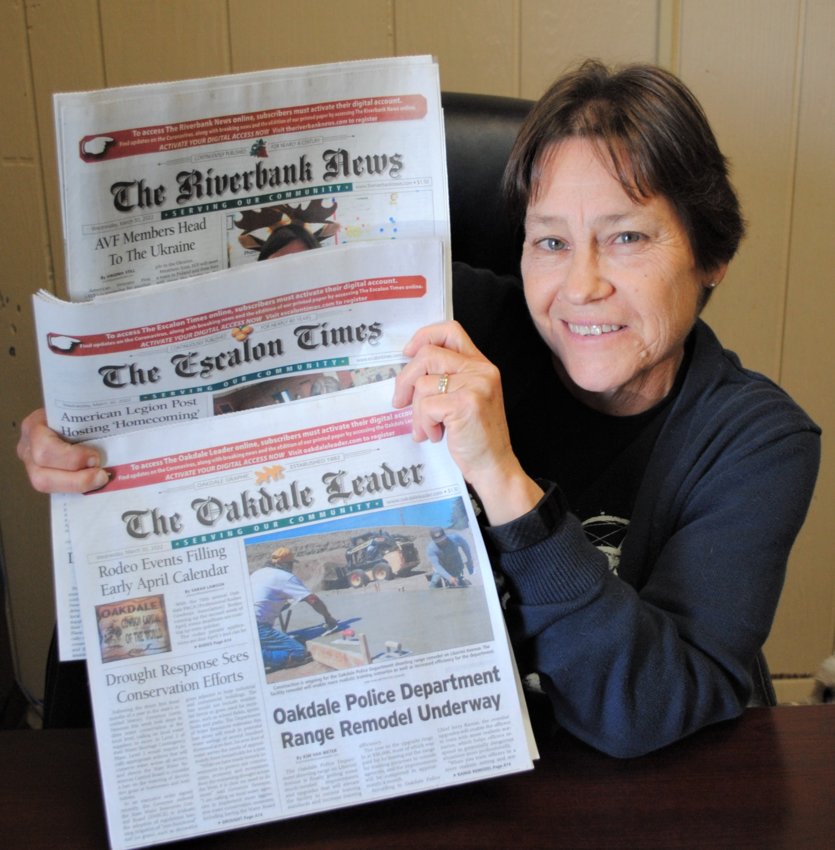
Marg Jackson
Editor, 209 Multimedia
Education: Mohawk Valley Community College and SUNY Cobleskill, studied journalism and early childhood education
Marg Jackson was nominated by not one but two of her employees. They called her “an outstanding human” who “uplifts everyone around her.” Her passion for local journalism and commitment to the communities she serves shined through in both nominations. “She has dedicated more than two decades of her life to this incredible passion and has singlehandedly run not one but three different publications simultaneously.” Her example has made a huge difference in her communities and the lives of her employees.
What advice do you have for other young professionals who aspire to become an editor extraordinaire?
Be open-minded, flexible and willing to learn. Never assume you know the answer to what seems to be a simple question and always ask people how to spell their first and last name. Trust your instincts, maintain integrity and don't underestimate the impact of the written word. In a world fraught with "fake news," make it your mission to be factual, fair and reliable.
How do you motivate your staff during challenging times?
We have a small but dedicated staff for the three newspapers we handle out of the Oakdale, California, office. I believe the motivation I provide is by doing, leading by example, not through inspirational talks or email blasts. We are committed to our communities, covering all aspects of life from the garden club meeting to the high school sports to the big crime and fire stories. We include it all, and even in the challenge at the height of the pandemic when many of these activities were shut down, my goal was always to let my staff know we remained an important lifeline to the community, perhaps even more than usual, as we kept readers informed and entertained by digging deeper and finding stories and photos to fill the pages each week.
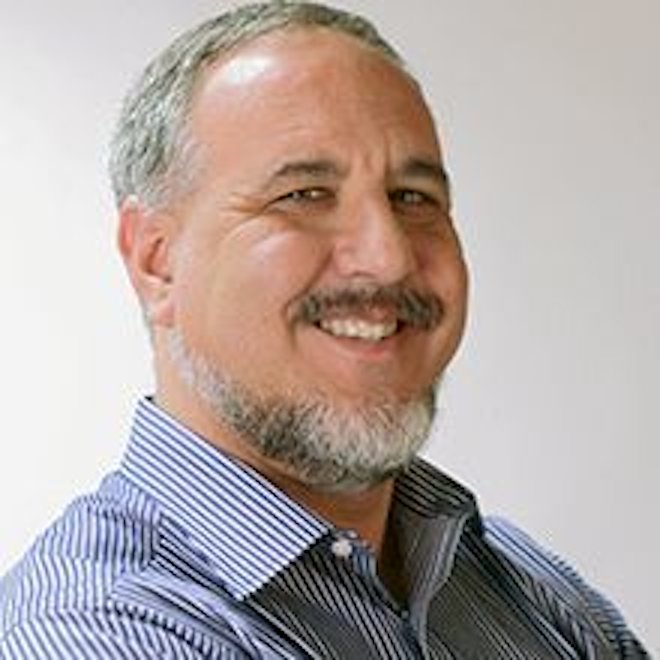
Michael Kilian
Executive Editor, Rochester Democrat and Chronicle; New York State Editor, USA TODAY Network, Gannett Co. Inc.
Education: Cornell University, studied journalism
Michael Kilian’s nomination by a colleague read, “Mike is consistently the driving force behind meaningful journalism, even when obstacles are stacked in the way — a calm, positive leader in an ever-changing industry and news landscape. He leads with compassion, kindness and a focus on journalism that matters to the communities we serve and makes a difference. … Simply put, he makes each team member feel like they matter. From everyday interactions to the highest-level strategy, Mike’s work elevates our journalists, empowering them to serve their communities with their very best work.” That is the textbook definition of an Editor Extraordinaire.
What advice do you have for other young professionals who aspire to become an editor extraordinaire?
The best journalism answers one question exceedingly well. An effective editor helps guide their reporters toward that framing question so that answering it might drive — but also focus — the reporting. This approach makes sense for readers but also in a business sense. We know that news subscribers, particularly in the digital space, will pay for stories that answer the “Who?”, “How?” and “Why?” questions that make stories unique and distinctive and relevant. So it is imperative that editors on the front end, without ever touching a keyboard, help ensure reporters are in pursuit of a well-crafted story. No book reports, I like to say. Just answer that one question well.
What is the most important lesson you’ve learned in covering government officials?
Request the records. Journalists too often spend our energies chronicling the back-and-forth between government officials and politicians when our real mission is to get past the spin and hold leaders and institutions accountable. When we file FOIA requests and take the time to review the documents we receive and follow up on what they tell us, that’s when we tell the real story instead of the apparent story.
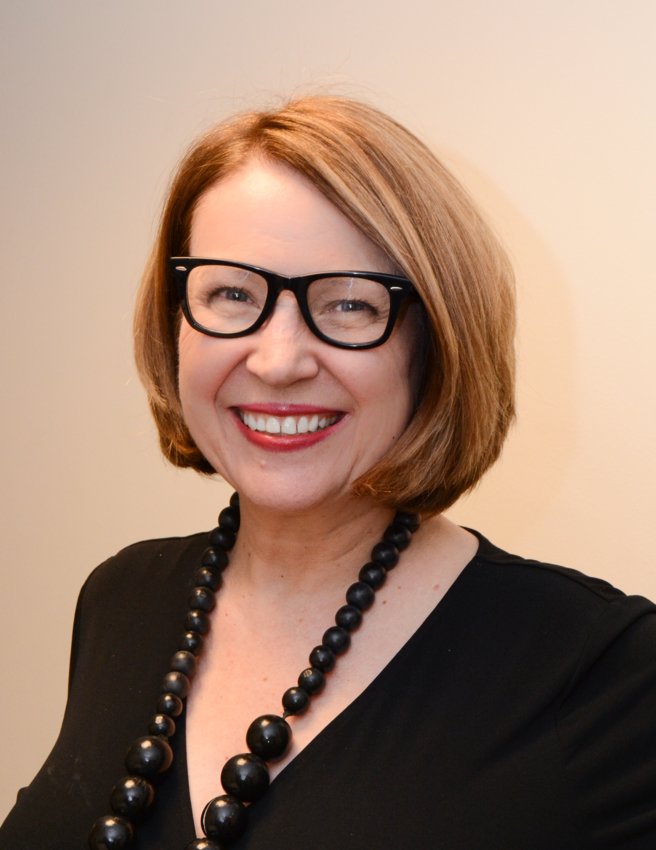
Donna Ladd
Editor, Executive Director and Co-Founder, Mississippi Free Press
Education: Mississippi State University, bachelor of arts in political science; Columbia Graduate School of Journalism, master of arts in journalism
Donna Ladd’s nomination by her co-founder/colleague said, “Donna's leadership and the MFP team have built the outlet quickly into a critical voice in Mississippi for people we don’t hear from enough — and MFP’s presence is resulting in real change and progress for the state’s citizens.”
What advice do you have for other young professionals who aspire to become an editor extraordinaire?
Be bold and willing to be unpopular with some to tell the truth. Stay present, grow a tough skin (especially if you’re a woman), and don’t obsess about being universally liked; we’re in journalism, after all. Get your team’s backs when attacked for doing their jobs, and lift them up publicly and one-on-one when they do good work. Focus hard on understanding the craft of compelling and impactful journalism and contextual storytelling. Always seek the why and how, not just the who, what, when and where. Embed real history (which is often the how and why) through narrative when possible, and don’t shy away from systemic reporting of how things got the way they are to help inspire people to repair the systems.
Demonstrate and expect excellence from others and help them achieve it; don’t just rewrite their work. Teach them to do it themselves and expect them to because that’s how they become great journalists, not through you fixing everything yourself. Guard your newsroom culture carefully: Hire and retain people who work together well and respectfully and involve your team in those expectations, interviewing and hiring choices.
What has been your proudest moment as an editor?
I am proud of the Black women journalists at the MFP and our collaborator, the Jackson Advocate, the state’s oldest Black newspaper, for their amazing and ongoing systemic and solutions reporting in the “(In)Equities and Resilience: Black Women, COVID-19 and Systemic Barriers” project and microsite. Black women colleagues are doing deep-dive reporting inside overlooked communities in counties around Mississippi, hosting solution circles with Black women across the state in conjunction with the project building networks and highlighting uncovered stories in news deserts across the state.
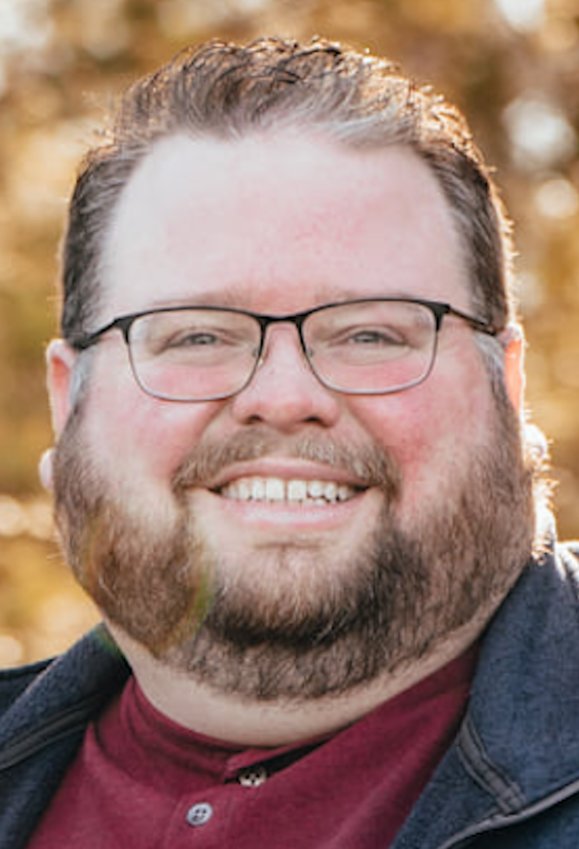
Fines Massey
Editor, The Laclede County Record
Education: Missouri State University, bachelor’s degree, print journalism
Fines Massey was nominated by his publisher, who said, “With a small staff including one reporter, a part-time sportswriter, a historian/obituary writer and a couple of stringers he uses for special projects, Fines Massey has managed to take first place general excellence honors through Missouri Press Association three years in a row.” Other outstanding traits called out are his excellence in journalism, ability to plan and keep projects on track, and his professionalism.
What advice do you have for other young professionals who aspire to become an editor extraordinaire?
I believe the real key to being a good editor is being a good reporter. You have to learn the ropes and work your way up to really know a little bit of everything. Especially in a small newspaper, you need to be a Jack of all trades.
What’s in your editorial toolbox?
I think one of the most important things to have in your toolbox is curiosity. You’ve got to want to ask questions about your community. You have to think like your readers. What is important to them? What do they want to know? What do they need to know?
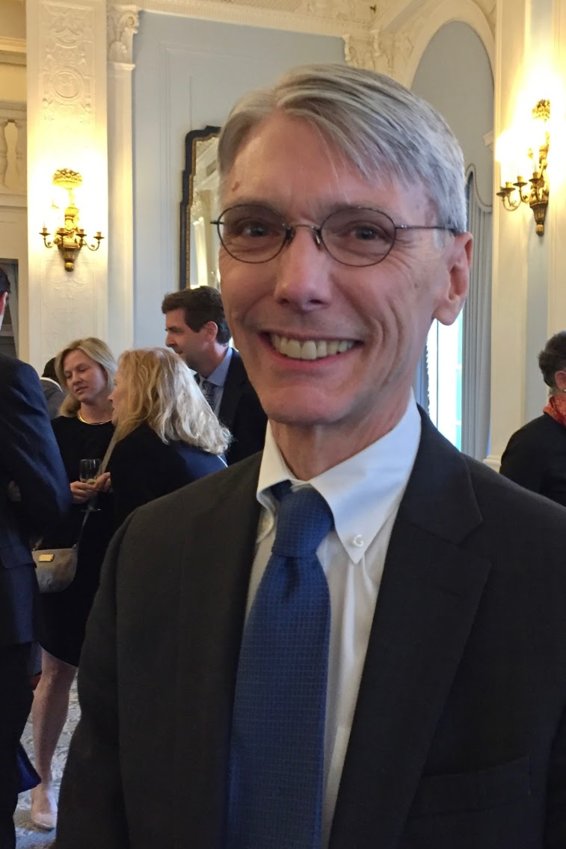
Kevin McKenna
Deputy Business Editor, The New York Times
Education: University of Southern California, bachelor of arts, journalism and political science; Columbia University, master of arts, journalism; Stanford University, Knight Journalism Fellow
Kevin McKenna was nominated by one of his employees/journalists, who said, “During my 30 years as a journalist, I have the privilege of working with some of the best editors in the business. Kevin McKenna sits atop a list of people who give impassioned care to the work of producing a story, often seeking, in his words, the most ‘elegant’ yet accessible way of writing. … Like his attention to the story, he also gives similar care and concern to his reporters… He juggles many great reporters and a terrific editor he also oversees while putting in long hours every workday. And as an African American, I have always appreciated his concern for diversity on our business staff, raising the issue at times he did not have to. Kevin is long overdue for recognition of his contributions to our industry.” We’re happy to give Kevin that recognition.
What advice do you have for other young professionals who aspire to become an editor extraordinaire?
It’s always about the story, but it’s also about empathy toward the subjects and your colleagues. Be invested in your reporters’ ideas and their work. And embrace change.
What’s the craziest or most exciting breaking news story you’ve put together?
Wow, so many. The most satisfying have involved working with reporters to find ways to crack a story that everyone was chasing. Many came from my time as technology editor, including this one (from 2000 — “Oracle Hired a Detective Agency To Investigate Microsoft’s Allies”) about how one Silicon Valley company was trying to discredit another..
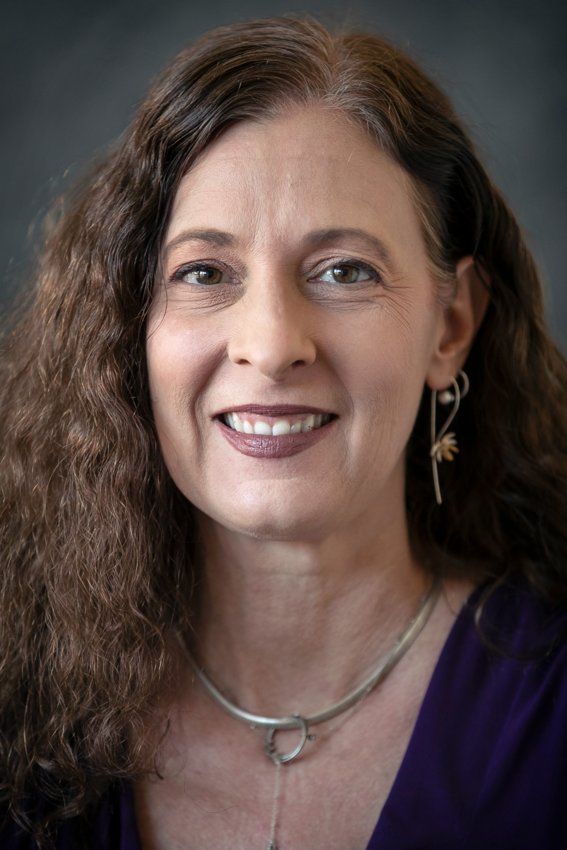
Cynthia Miller
News Content Editor, Santa Fe New Mexican
Education: Ohio University, bachelor of arts, creative writing
Cynthia Miller was nominated by a colleague who said, “Cynthia does a magnificent job of doing the most essential function that an editor can do — she makes the people around her better. Cynthia asks hard questions of her reporters and demands that they do the same with their sources. In recent years, Cynthia has played a pivotal role in our ‘10 Who Made a Difference’ campaign, which recognizes the volunteer work of people in our community. She worked with the city’s mayor to recognize these volunteers in front of thousands of people, linking the newspaper's work to the lives of the community. I’ve known Cynthia for more than 15 years and have watched her develop over time. She's an asset to our company.”
What advice do you have for other young professionals who aspire to become an editor extraordinaire?
I think of myself as an accidental journalist, derailed from a career in fiction writing by an unexpected fondness for the stories found in a community. Yes, we are watchdogs, but we are also informers, entertainers and excavators. I’ve learned that you must love the place and people you serve and develop an obsession for telling their stories well. But don’t expect them to love you back.
I’ve heard editors fondly refer to a hardworking reporter as “The Machine.” Avoid this. Keep your standards impossibly high, but be aware that good reporters are human — and increasingly difficult to replace.
Get a cat instead of a dog.
What has been your proudest moment as an editor?
Two proud moments come to mind, both in 2021. I rarely get jazzed about awards, but in late October, when our reporters swept a number of New Mexico Press Association awards for work they had done in tough pandemic-era conditions, I was in awe of a team that had triumphed amid the unrelenting pressure I had put on them.
And in December, as I took the stage at a holiday event in downtown Santa Fe to applaud the selfless work of 10 community volunteers honored by The New Mexican. I was proud to have a role at a newspaper with a long history of engaging the community in such a personal and poignant way.
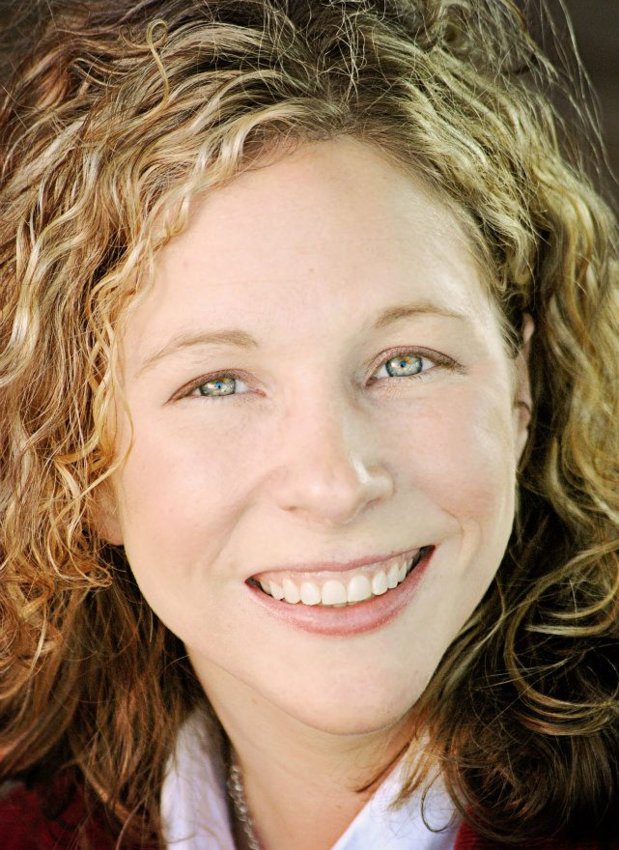
Heather Mullinix
Editor, Crossville Chronicle
Education: Tennessee Technological University, bachelor of science, English-journalism
Heather Mullinix was nominated by her publisher, who wrote, “Readers/community first is always top of mind with Heather. She is respected by all top government officials (city council, county commission, school board) and is known to be fair and honest. … This editor ensures that we, as a newspaper, will be 80% to 90% locally produced content with any given publication. She’s the editor who first tries to find a way to get something in publication, or do something meaningful, rather than look for a reason to do nothing at all.”
What advice do you have for other young professionals who aspire to become an editor extraordinaire?
I am only as good as the staff that supports me. I set high expectations, and we have a culture of mutual respect in our newsroom. We collaborate to find solutions to issues or problems in our processes, and when things get a little crazy, we all pitch in to get the job done.
It’s also important to remember the community you serve. One of the best aspects of working in a small community is the accountability our readers provide. I not only field calls and concerns from my office but when I'm out in the community, shopping, having dinner or enjoying a local event. That accountability reminds me of those I serve — the people who live, work and play in my community. That’s why we focus on local news coverage. As a twice-weekly paper, we offer national news on our website. Still, our paper is consistently 80% local content, with everything from the most recent trial or the school board meeting to little league baseball and the 4-H public speaking winner.
What is the most important lesson you’ve learned about covering government officials?
Be fair, be honest and be transparent. Treat everyone with respect while continuing to uphold journalistic principles and editorial policies.
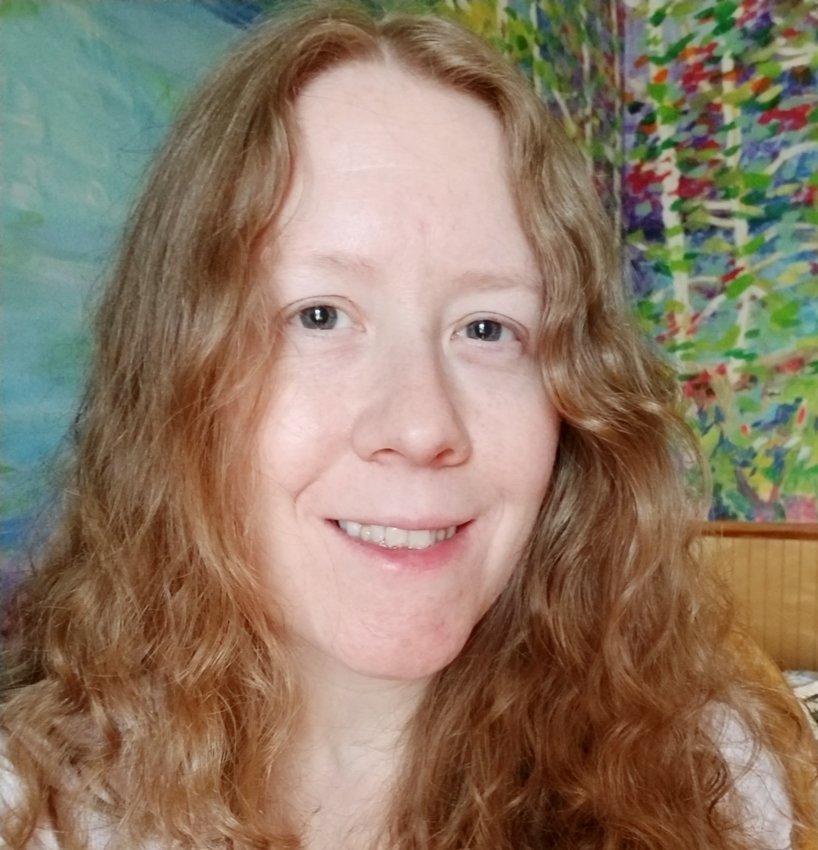
Lisa Reider
Managing Editor, Shawangunk Journal
Education: Ithaca College, bachelor of arts, journalism
Lisa Reider’s publisher nominated her with these words: “Beyond her incredible intellect and talent as a writer and editor, beyond her intrinsic integrity and her ability to parse complexities and tease a clever headline, and beyond her willingness to go above and beyond for our newsroom, Lisa personifies what it means to be the calm in the storm. She is unflappable. … She has single-handedly raised the bar for our reporters and consistently given them concise and patient direction.”
What advice do you have for other young professionals who aspire to become an editor extraordinaire?
The most important part of crafting a story is readability. It’s part translation, part performance. You have to translate complicated laws, scientific data and multi-layered life experiences into something that not only gets the information across but does so in a way that engages the reader. If you’re struggling to understand an aspect of the story, if you stumble over words as you’re editing, then the reader will stumble, as well. In those situations, I tell writers to read what they wrote aloud and hear the words. How it sounds is how it will be read. Viewing the story almost as an oral report, or even a TV broadcast, can help you better pick up overly complicated phrasing or maybe find shorter sentences and words that could be changed. The key is communication, honing in on what matters most and constructing the information in a way that can be understood and passed on. Once you master that skill, readers will know they can rely on you for clean, understandable and thought-provoking reporting, whatever the story may be.
What was something you’ve published that truly surprised you with how it was received by your audience?
When you put something out into the world, it’s always a gamble on how readers will react. In one story about a young man who needed a special medical procedure, some readers reached out to help him financially after we published the story. The man’s struggle to fund his own medical necessities resonated with a lot of people. In another story about a man trying to gain control of his late wife’s pension, a reader reached out to help him navigate the complicated legal system. Any time a story resonates with a reader enough so that they actually make an effort to reach out to us to make that human connection, it’s a welcome surprise.
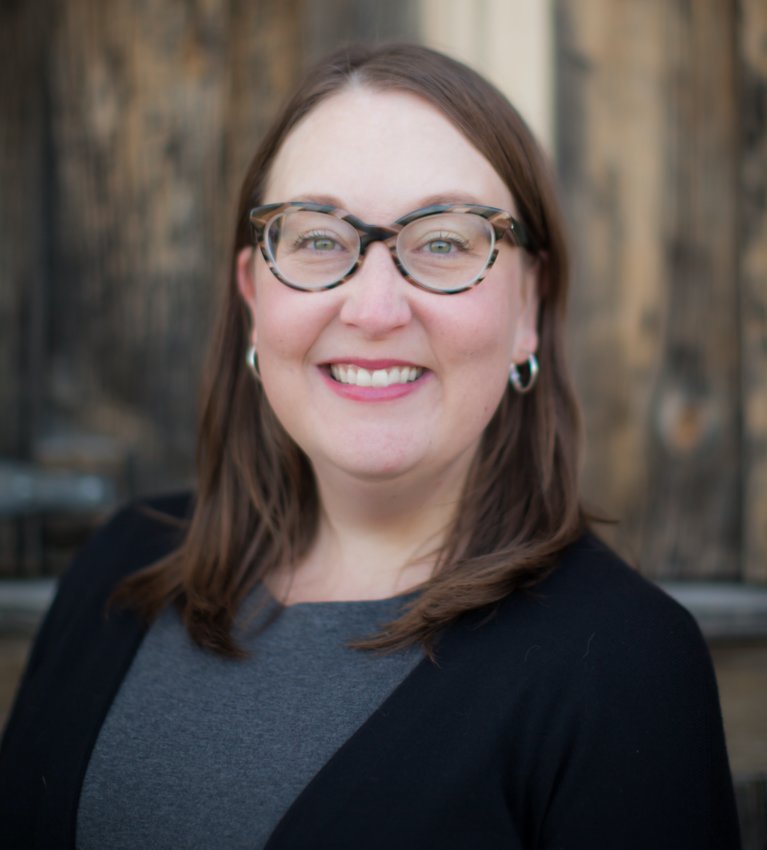
Kristen Cox Roby
Atlantic Region Storytelling Editor, USA TODAY Network
Education: University of Missouri-Columbia, bachelor's degree, journalism; Binghamton University, master of arts, English
One of her reporters nominated Kristen Roby with this recommendation: “Kristen Roby causes a scene wherever she goes — in the best possible way. She has taught this old dog to create narratives by not relying on quotes but rather by putting the reader in the moment, in the scene, making a connection that a notebook full of complete quotes could not. … Kristen has brought the best possible motives — service to the reader and the story — to the exercise. She has made me a believer. Kristen Roby has an eye for just the right detail and an ear for dialogue that rings hollow. She is a what-if-we-try-this collaborator. … On projects large and small, her mission — always accomplished — was to elevate journalism, put the story first, and treat the reader to a great read.”
What advice do you have for other young professionals who aspire to become an editor extraordinaire?
Respect and learn from everyone: your manager and your reporter, photographers and designers, SEO strategists and content analysts, the editor who’s been at your company for 30 years and the new graduate who just joined the team. Collaboration is the key to successful journalism. Editing is about more than handling copy and coaching reporters; it’s about bringing talented specialists together to share ideas about words, visuals, design, audience and more. Some of our most powerful journalism emerges through consistent, meaningful, inclusive conversations.
What was the most interesting story you’ve covered?
Beginning in 2020, a team of USA TODAY Network New York journalists shadowed six families from across the state as they endured a year of learning during a pandemic. We captured this diverse group of families for this ambitious storytelling project — from a single mother who had just regained custody of her young daughter to a large, multigenerational household of refugees — as they navigated a school year like no other. Reporters and photographers checked in five times over the course of the 2020-21 school year and published nearly three dozen stories with accompanying documentary-style visuals. The families shared their fears, frustrations, hassles and hopes with readers as our journalists built a bedrock of trust and transparency to tell their stories with empathy. The series was a hit with readers, generating new subscriptions and even a bit of celebrity for the participants, and proved to be a milestone experience for both our sources and the journalists involved.
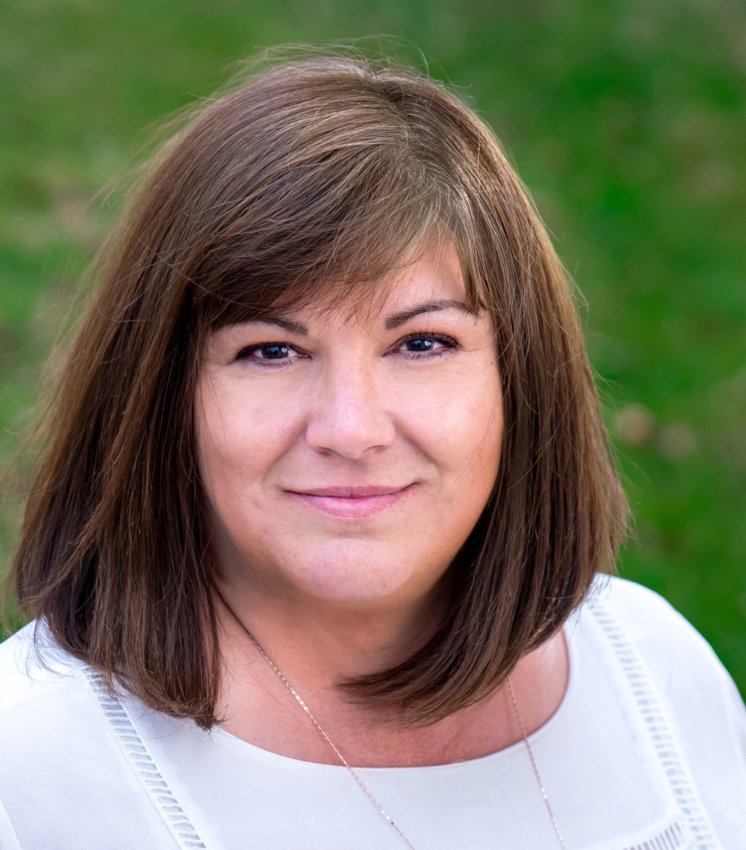
Wendy Royal
Editor, Engle Printing and Publishing Co., Inc.
Wendy Royal was nominated by a coworker, who said, “Under the direction of editor Wendy Royal, the newspaper not only survived during the pandemic, but it thrived. Local events are the heartbeat of our newspapers, and when the pandemic shut everything down, it could have put an end to the publication. With out-of-the-box thinking and guidance, Wendy helped her writers continue to produce quality local news each week. She truly cares about the community and her staff. She believes in the value of a small-town newspaper, knowing it’s where people see their friends and neighbors in the news, learn about nonprofits doing important work and find fun activities to participate in with their families. Wendy is open to new ideas, can pivot when the circumstances require it, and always encourages her staff. … We focus on the positive things happening in our community and tell the stories of people making a difference. With Wendy at the helm, it’s easier than ever to do that.”
What advice do you have for other young professionals who aspire to become an editor extraordinaire?
First, be willing to serve. Realize that the job is not about you but the people in the communities you serve. Second, don't be afraid to fail. If you are, you’ll never take a risk; you’ll never propose that idea you have because it's on you if it doesn't work. Remember that failure is part of your journey and your success. And, finally, don’t be controlled by your title. If you see a need and you can contribute positively, offer to help out. Managers will remember both an “it’s not in my job description” and a “how can I help?" attitude. The difference is that one may help propel you, and the other will not.
Why should investigative journalism be important to local news publications?
It is absolutely imperative for the public to have access to investigative journalism in local newspapers. Communities are best served when journalists hold those in power accountable. When investigative reporting goes away, so do the freedoms we hold so dearly.
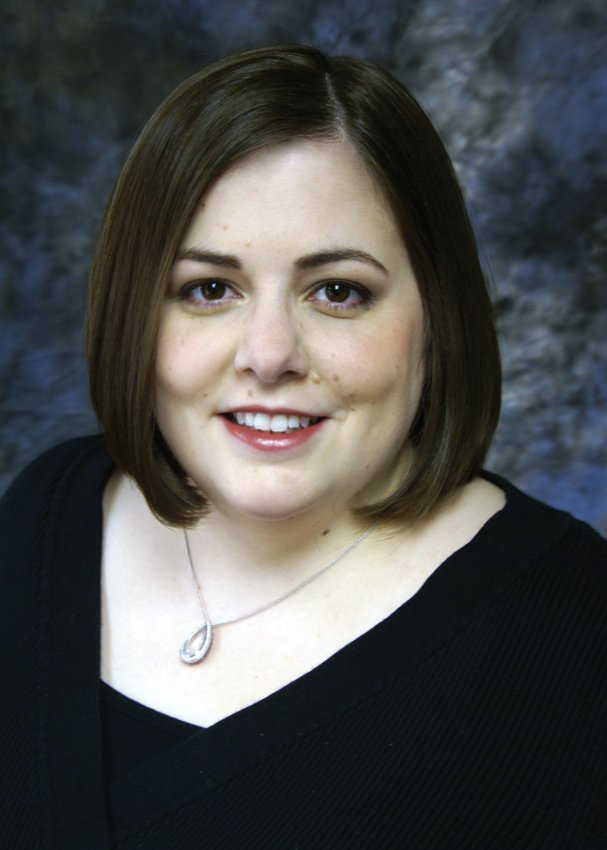
Gina Rullo
Editor-in-Chief, The Hammonton Gazette
Education: Villanova University, bachelor of science, finance
Gina Rullo was nominated by her publisher/co-founder, who said, “Gina Rullo is the founding Editor-in-Chief of The Hammonton Gazette, celebrating its 25th anniversary in 2022. She started in the position when she was a 20-year-old undergraduate student at Villanova University. During Rullo's tenure as Editor-in-Chief, she has proven to be a dynamic, intelligent, visionary leader. Her fearlessness and genuine commitment to journalistic ethics are complemented by her compassion, empathy and sense of humor. … Her gifted leadership makes all aspects of The Hammonton Gazette run as a cohesive team. She has been awarded various awards, including Atlantic City Weekly's 2006 ‘Top 40 Under 40;’ enshrinement as one of the youngest members of the Atlantic County Women's Hall of Fame in 2010; and The Society of Professional Journalists-New Jersey’s 2021 ‘Courage Under Fire’ and Investigative Journalism Awards.”
What advice do you have for other young professionals who aspire to become an editor extraordinaire?
You are telling the stories of other people. Writers and editors need to leave their egos and personal opinions at the door. You will meet people with whom you disagree on a visceral level, but your writing or editing can never show those feelings.
What is the most important trend in editorial content today?
I love infographics when they accompany an article. People are very visual, and a quality graphic can make the information more accessible and invite the reader to read more closely.
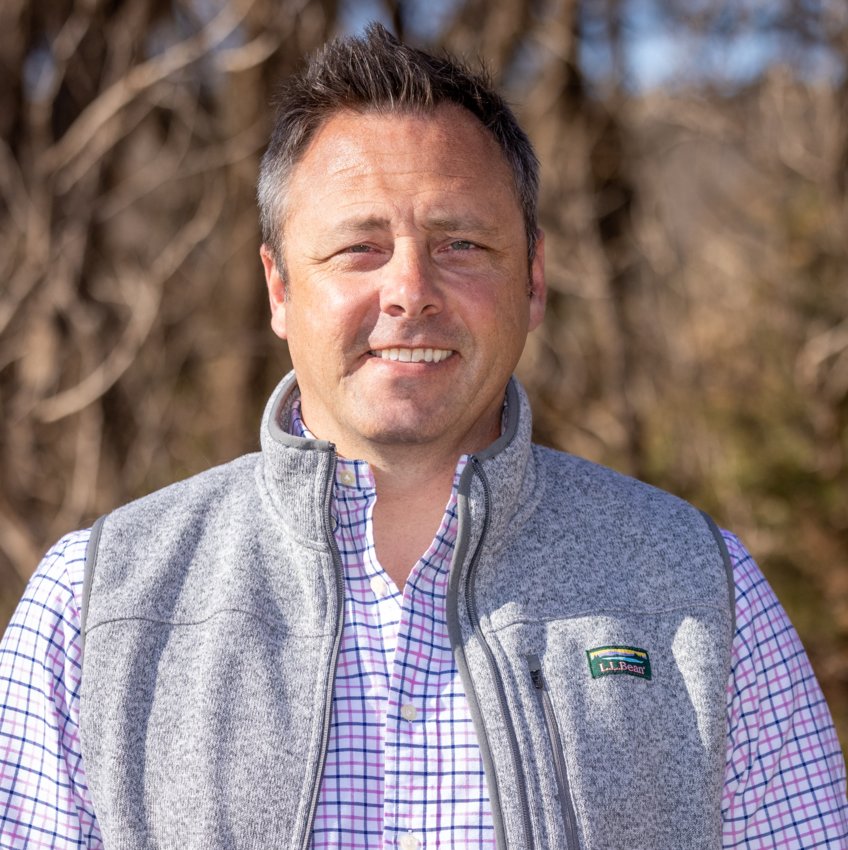
Michael Swisher
Managing Editor, Kingfisher Times & Free Press, Kingfisher, OK
Education: Auburn University, journalism
Michael Swisher was nominated by a coworker who wrote: “Michael Swisher is the epitome of a small-town editor; no job is too big or too small. His official title is managing editor, but he also serves as sports editor/writer (covering every sport in six school districts), news and feature writer, photographer, ad circular inserter and newsstand-filler. Over the years, he’s mentored a number of interns and fledgling writers and always manages to find projects that ignite their enthusiasm as he teaches them the value of an engaging lead and tight, active writing. When COVID-19 swept through our office last year, ‘Swish’ was emailing articles from his bed as he waged a five-day battle to stay out of the hospital. He has been recognized by our local chamber of commerce as one of its Citizens of the Year and by our state's high school activity association for ‘excellence in sports coverage.’”
What advice do you have for other young professionals who aspire to become an editor extraordinaire?
I’ve never worked in a big shop, so I’m only speaking from my experience with a smaller paper. You have to be well-rounded. At our newspaper, you might cover a sporting event, a highly-contentious school board meeting, a county commission meeting and then take pictures of the young lady turning 100 at the nursing home. On top of a wide array of stories you may cover, you also have many ways to report. On top of your print edition, you may need to update the website or provide multiple up-to-the-minute updates on social media of certain events. Oh, and sometimes you’ve got to take a break from the 1,200-word feature you’re working on to stuff ad inserts into the latest print edition and deliver them to the newsstands. Don’t be too big for any task. … All of it matters here.
What do you look for when hiring a journalist for your team?
I want someone with a work ethic. This job isn’t always easy, and sometimes you really have to grind. You can become a better writer over time. You can become a better interviewer with each opportunity you get. You can develop better sources as you stick with your beat. But none of that is possible if the work ethic isn’t there. The best student intern we had at the newspaper nearly made me miserable because I couldn’t keep her busy enough. It was a good misery to have.
Comments
No comments on this item Please log in to comment by clicking here